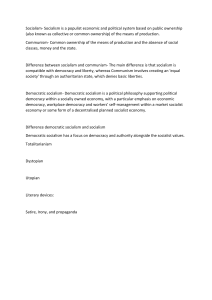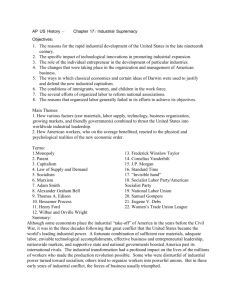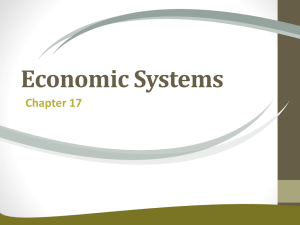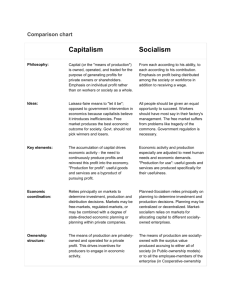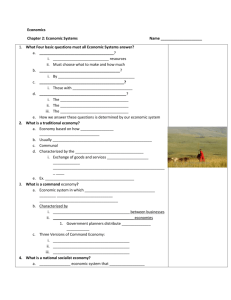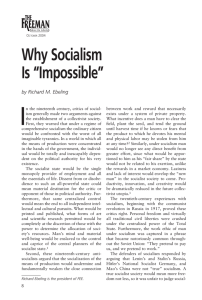Document 11690206
advertisement
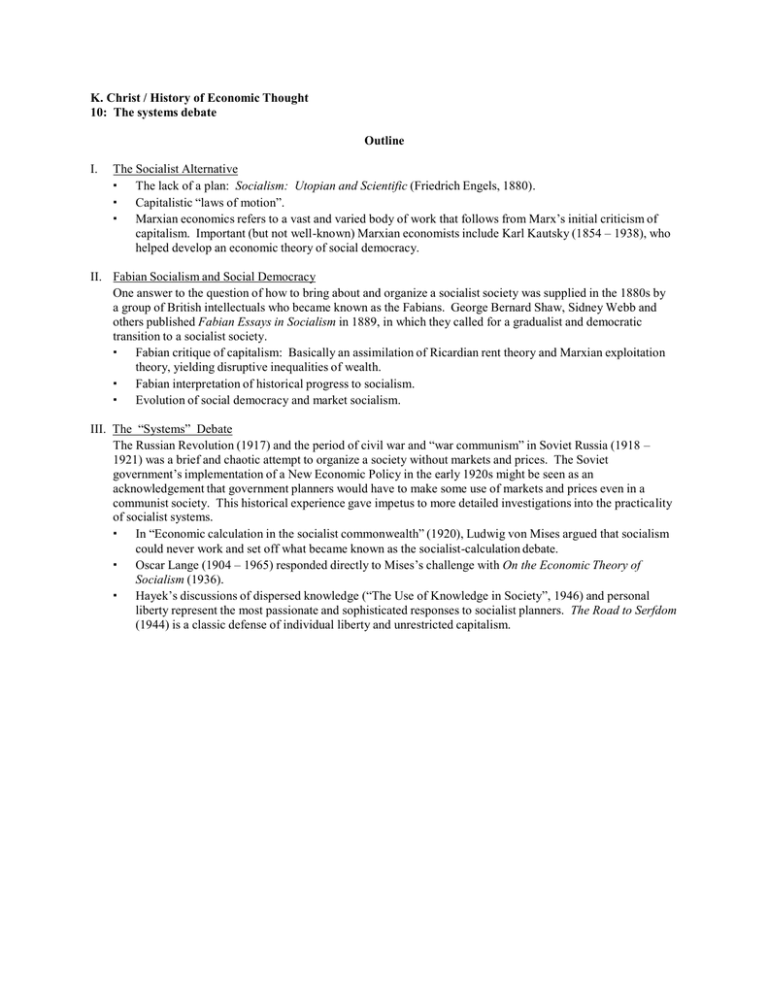
K. Christ / History of Economic Thought 10: The systems debate Outline I. The Socialist Alternative ∙ The lack of a plan: Socialism: Utopian and Scientific (Friedrich Engels, 1880). ∙ Capitalistic “laws of motion”. ∙ Marxian economics refers to a vast and varied body of work that follows from Marx’s initial criticism of capitalism. Important (but not well-known) Marxian economists include Karl Kautsky (1854 – 1938), who helped develop an economic theory of social democracy. II. Fabian Socialism and Social Democracy One answer to the question of how to bring about and organize a socialist society was supplied in the 1880s by a group of British intellectuals who became known as the Fabians. George Bernard Shaw, Sidney Webb and others published Fabian Essays in Socialism in 1889, in which they called for a gradualist and democratic transition to a socialist society. ∙ Fabian critique of capitalism: Basically an assimilation of Ricardian rent theory and Marxian exploitation theory, yielding disruptive inequalities of wealth. ∙ Fabian interpretation of historical progress to socialism. ∙ Evolution of social democracy and market socialism. III. The “Systems” Debate The Russian Revolution (1917) and the period of civil war and “war communism” in Soviet Russia (1918 – 1921) was a brief and chaotic attempt to organize a society without markets and prices. The Soviet government’s implementation of a New Economic Policy in the early 1920s might be seen as an acknowledgement that government planners would have to make some use of markets and prices even in a communist society. This historical experience gave impetus to more detailed investigations into the practicality of socialist systems. ∙ In “Economic calculation in the socialist commonwealth” (1920), Ludwig von Mises argued that socialism could never work and set off what became known as the socialist-calculation debate. ∙ Oscar Lange (1904 – 1965) responded directly to Mises’s challenge with On the Economic Theory of Socialism (1936). ∙ Hayek’s discussions of dispersed knowledge (“The Use of Knowledge in Society”, 1946) and personal liberty represent the most passionate and sophisticated responses to socialist planners. The Road to Serfdom (1944) is a classic defense of individual liberty and unrestricted capitalism.
